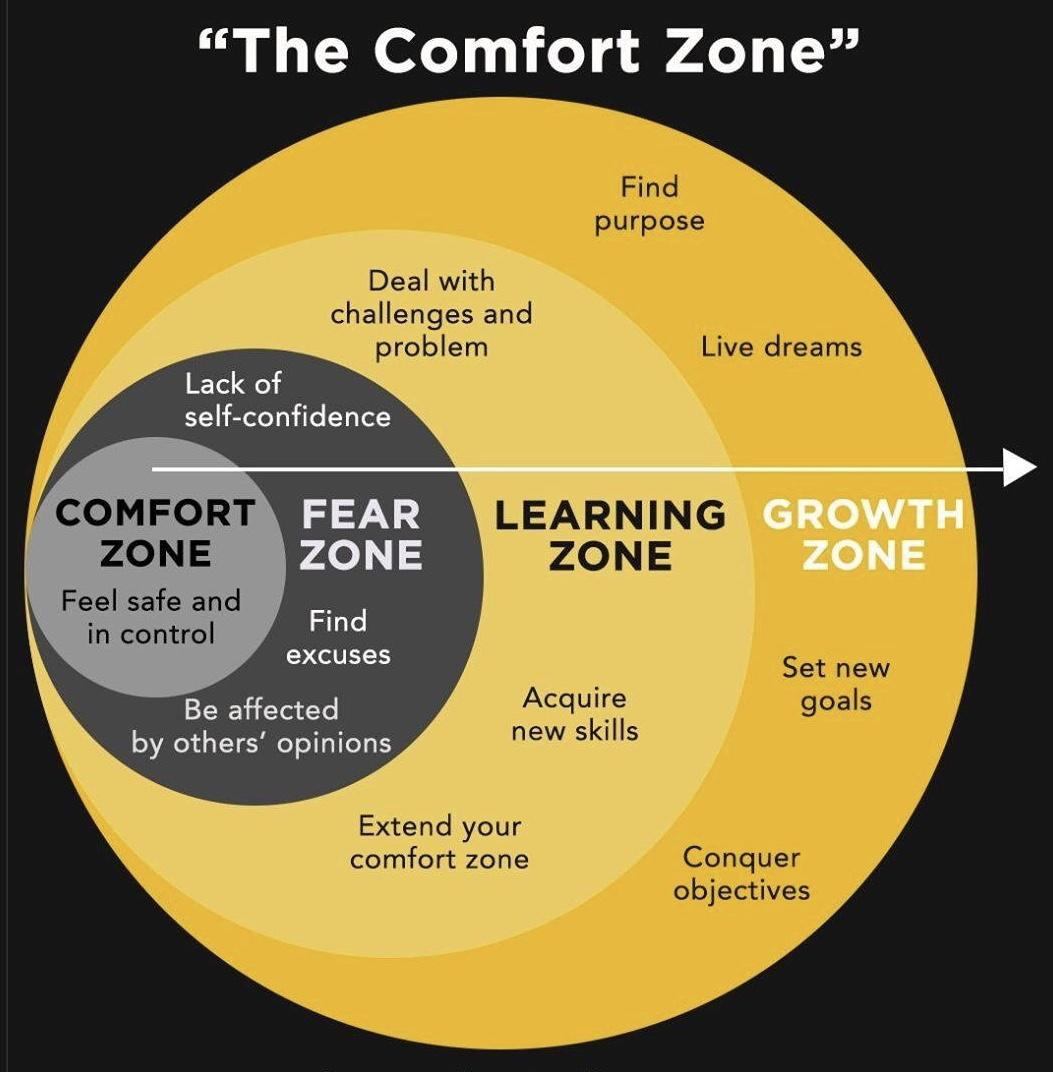In a world where addiction is often associated with substances like sugar, cocaine, heroin, or alcohol, it may come as a surprise that one of the most pervasive and insidious addictions is comfort. Comfort, while seemingly harmless, can become a powerful force that holds individuals back from realizing their true potential. This essay will delve into the concept of comfort addiction, exploring its psychological mechanisms, its impact on personal growth, and strategies to break free from its grip, ultimately enabling individuals to reach their true potential.
Understanding the Addiction of Comfort:
At its core, the addiction to comfort stems from the human instinct to seek safety and security. Comfort provides a sense of familiarity and stability, shielding individuals from the discomfort and uncertainty of change. However, this reliance on comfort can morph into a dependency, trapping individuals in stagnant routines and preventing them from taking risks or pursuing new opportunities.
Psychologically, comfort addiction operates through the reinforcement of neural pathways associated with familiar behaviors and environments. Just as substance addictions alter brain chemistry, the habitual pursuit of comfort rewires the brain to prioritize familiar stimuli and resist unfamiliar challenges. This neurological conditioning reinforces the cycle of comfort-seeking behavior, making it increasingly difficult for individuals to break free from its grasp.
Impact on Personal Growth:
While comfort may offer temporary relief from stress or discomfort, its long-term effects can be detrimental to personal growth and fulfillment. By avoiding discomfort and risk, individuals miss out on valuable learning experiences and opportunities for self-improvement. The comfort zone becomes a self-imposed barrier that limits exploration, innovation, and creativity, ultimately stifling personal development.
Moreover, the addiction to comfort can lead to a sense of complacency and stagnation. Individuals may settle for mediocrity rather than striving for excellence, content to remain within the confines of their comfort zone. This mindset can breed regret and dissatisfaction, as individuals realize they have failed to fulfill their potential or pursue their passions.
Breaking Free from Comfort Addiction:
Breaking free from the addiction of comfort requires a concerted effort to challenge ingrained habits and beliefs, as well as a willingness to embrace discomfort and uncertainty. Here are some strategies to help individuals overcome comfort addiction and unlock their true potential:
1. Recognize the Signs: The first step in breaking free from comfort addiction is acknowledging its presence in one's life. This involves recognizing patterns of behavior and thought that prioritize comfort over growth, such as avoiding challenges, procrastinating on important tasks, or clinging to familiar routines.
2. Embrace Discomfort: Growth and change inherently involve discomfort, as they require stepping outside of one's comfort zone and confronting new challenges. Rather than viewing discomfort as a negative experience to be avoided, individuals should embrace it as an opportunity for growth and learning. By reframing discomfort as a natural part of the growth process, individuals can develop resilience and adaptability in the face of adversity.
3. Set Meaningful Goals: Setting clear, achievable goals is essential for breaking free from comfort addiction and pursuing personal growth. These goals should be challenging enough to push individuals out of their comfort zone, but also realistic enough to be attainable with effort and perseverance. By setting meaningful goals that align with their values and aspirations, individuals can maintain motivation and focus on their journey toward self-improvement.
4. Cultivate a Growth Mindset: A growth mindset is characterized by a belief in the potential for change and improvement. Individuals with a growth mindset approach challenges as opportunities for learning and development, rather than insurmountable obstacles. By cultivating a growth mindset, individuals can overcome the fear of failure and embrace the process of experimentation and iteration that leads to success.
5. Seek Support and Accountability: Breaking free from comfort addiction can be a daunting task, and individuals may benefit from the support of friends, family, or mentors who encourage and challenge them to grow. Accountability partners can help individuals stay committed to their goals and provide encouragement during times of struggle. Additionally, seeking out communities or resources dedicated to personal growth can provide valuable insights and inspiration along the journey.
Conclusion:
Comfort addiction is a pervasive force that can hinder personal growth and prevent individuals from reaching their true potential. By understanding the psychological mechanisms underlying comfort addiction and adopting strategies to break free from its grip, individuals can embark on a journey of self-discovery and transformation. Embracing discomfort, setting meaningful goals, cultivating a growth mindset, and seeking support are essential steps in overcoming comfort addiction and unlocking the limitless possibilities that await outside the comfort zone. Ultimately, by embracing the challenges of change and pursuing personal growth with courage and determination, individuals can realize their true potential and live a life of fulfillment and purpose.
 Pramod Pathak
Pramod Pathak


